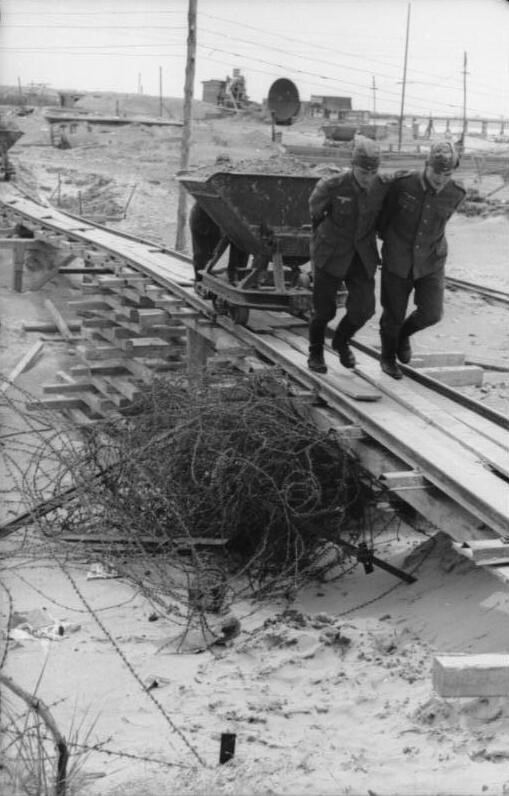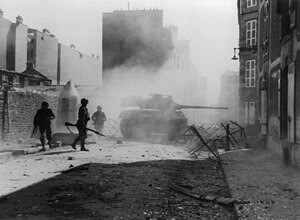Part of Operation Overlord, Battle of Normandy
A US M18 Hellcat of the 705th Tank Destroyer Battalion in the streets of Brest in September 1944
Wikipedia – Public Domain
This Battle of Brest was fought in August and September 1944 on the Western Front of France. There were 37 Allied divisions scheduled to arrive by September 1944 and they needed 26,000 tons of supplies each day. A permanent port was needed for the war for battle supplies to get through to the Allies. Brest, in northwestern France, was chosen to replace the artificial ports on the Normandy beaches, and it was therefore invaded by the Allies. There were other ports also selected, and those were: Saint Malo, Lorient, and Saint Nazaire in Brittany, Cherbourg and Le Havre in Normandy (eventually selected as invasion landing areas).
The Germans began defense preparation with U-boats and cement fortifications and other means around the ports. Included in this fortification process was the Atlantic Wall project to fortify the coasts of occupied France, the occupied Netherlands, Belgium, Denmark, and Norway, plus the British Channel Islands.

Construction of the Atlantic Wall fortifications in the 1940s
This file is licensed under the
Creative Commons Attribution-Share Alike 3.0 Germany license.
The Allies had to fight their way through those fortifications getting to the Axis. Heavy artillery was used by both sides. Brest was surrounded. The U.S. VIII Corps fought through the city. The old part of Brest was razed to the ground. The only fortifications remaining were some medieval stone-built ones. And Brest surrendered on September 19, 1944.
Wikipedia wrote: “After the war, the West German government paid reparations to civilians in Brest who had been killed, starved, or left homeless.” I would like to know how! Here’s what I found on the internet with no source: “In 1952, the London Agreement on German External Debts assessed the final reparation figure at $3 billion. Germany has yet to pay off its debts for World War II.” (Look for my forth-coming article on my friend Paul’s wife whose family consisted of displaced persons in Germany.)

